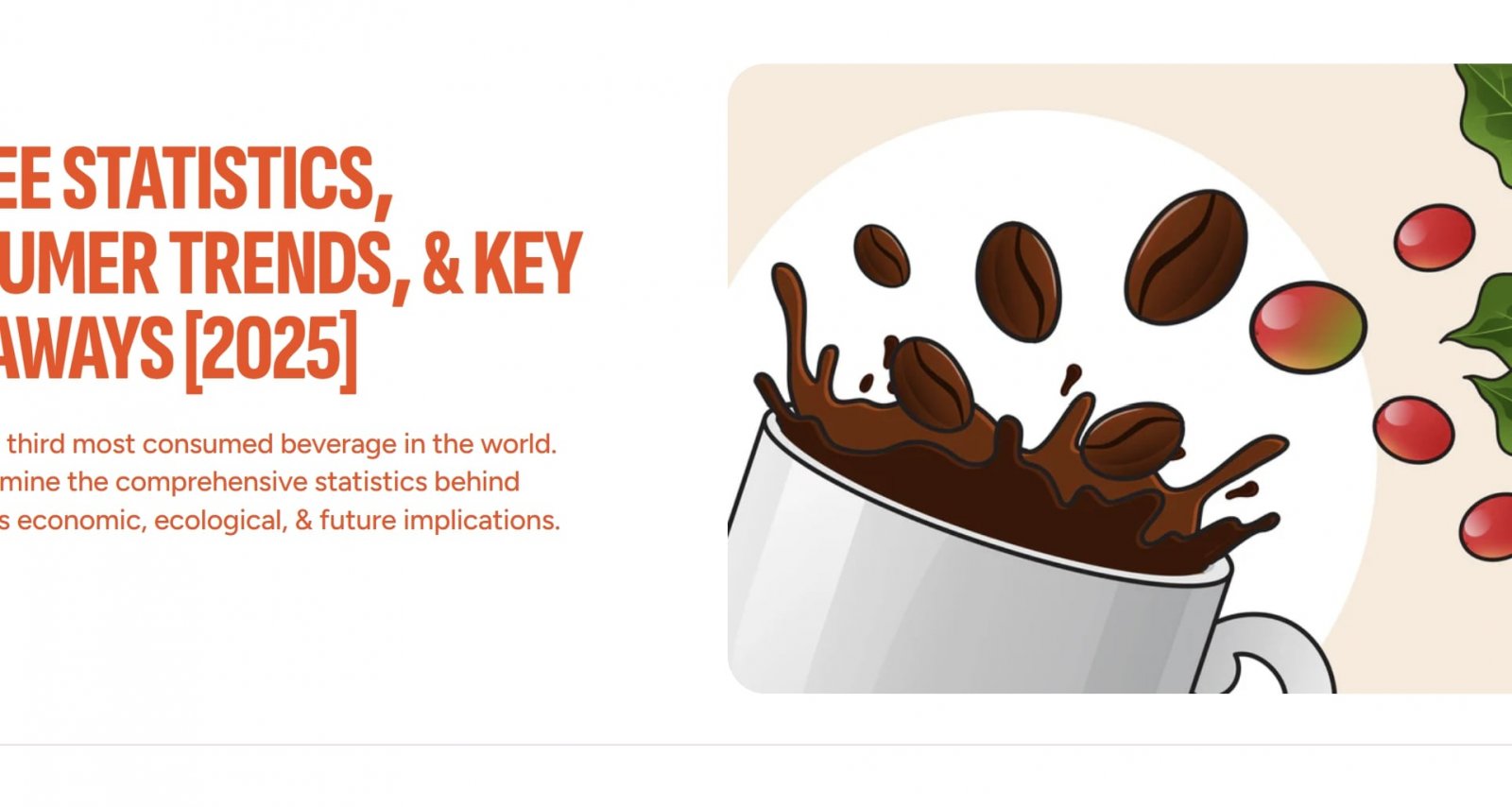
Polly Wyman
Polly Wyman
The Compelling Landscape of Coffee Statistics by Cafely: Unpacking Global Trends
Coffee stands as the world's third most consumed beverage, trailing only water and tea. Understanding coffee statistics provides essential insights into not just consumer preferences but broader societal trends and ecological impacts. Cafely's coffee research is comprehensive, spanning multifaceted dimensions from consumption behaviors to environmental implications. This analysis aims to present vivid revelations regarding current coffee consumption statistics while exploring systems-level consequences that weave together economic viability, ecological responsibility, and changing societal norms.
Key Insights Derived from Current Coffee Research:
- Ubiquitous Daily Consumption:
- In the U.S., a staggering 65% of individuals consume coffee daily—outstripping even bottled water at 55%.
- Comparative data reveals that in Canada, daily consumption rates rise to 71%, significantly shaped by culturally ingrained behaviors tied to local chains like Tim Hortons.
- Global Production Dynamics:
- South America remains a titan in production, yielding approximately 4 million tonnes annually.
- China surprises many as it leads in yield per hectare (3.25 tonnes), underlining an emerging narrative where non-traditional markets refine agricultural practices to increase output.
- Emerging Trends Shaping Market Demand:
- A noticeable shift has occurred towards gourmet coffee, driven largely by home brewing convenience paired with heightened expectations for quality.
- Unique specialty beverages (like seasonal flavorings) have experienced significant growth, echoing broader culinary trends leaning toward personalized experiences.
- Environmental Responsibility and Its Implications:
- Food waste in the coffee industry is seen as its largest ecological footprint contributor.
- Emerging biofuel conversion research seeks sustainable solutions not just for recycling spent grounds but also positioning the industry favorably against sustainability measures such as zero-waste initiatives expected by 2025 in some regions.
Adjacent Subtopics of Exploration:
- Cultural Perceptions and Rituals: Countries like Japan maintain a reverence for high-quality brewing techniques while retaining strong sales in instant varieties—illustrating varied cultural landscapes influencing consumption habits differently worldwide.
- Economic Influence of Coffee on Employment & Livelihoods: The U.S. coffee sector boasts over $343 billion impact on the economy; yet this figure belies critical employment narratives tied to production regions globally, where livelihoods depend significantly on market fluctuations driven by supply chain logistics and climate variability.
Systems-Level Implications of Coffee Consumption
The evolving landscape reveals more than simply statistical variation; it presents an intricate tapestry of influences converging through multiple vectors including global trade policies and shifting social norms around sustainability:
- Economic Frameworks: Informed consumer choices affect spending habits; evidence shows nearly half of Americans buy weekly from cafes with an increasing spend trend marking rising quality perceptions leading towards better labor conditions in cultivation zones.
- Ecological Consequences Tied to Consumerism: Patterns denote growing demands reflect ecological stakes—higher-quality beans raise conversations about fair trade principles leading consumers toward mindfulness regarding their choices’ carbon footprints.
- Healthcare Perspectives Influencing Consumption Choices: With research correlating moderate caffeine consumption with health benefits among older adults elevates consumption discussions transcending traditional beverage boundaries—entering realms impacting national public health dialogues alongside nutrition advisory channels.
Conclusion
In traversing these various facets within Cafely’s meticulous reports on "coffee statistics," a stronger comprehension emerges—the art of drinking coffee intertwines intimately with cultural ritualistic behavior across geographic divides while projecting underlying complexities weaved through economic landscapes facing progressive challenges toward environmental justice.
As trends predict further growth, innovation within both specialty drinks as well as processing techniques promises fascinating shifts yet further expanding realms worth delving into through scholarly pursuits or casual conversations alike.
Website: https://cafely.com/blogs/research/coffee-statistics
Address: 5940 S Rainbow Blvd, Las Vegas NV 89118
Phone: +1 (877) 947-7947
Email: pollywyman@gmail.com
Tags: #CoffeeStatisticsCafely, #GlobalCoffeeConsumption, #CoffeeMarketTrends, #BeverageIndustryData, #CaffeineConsumptionStats, #CoffeeEconomicsResearch, #WorldwideCoffeeDemand
Google Site: https://sites.google.com/view/pollywyman
Blog: